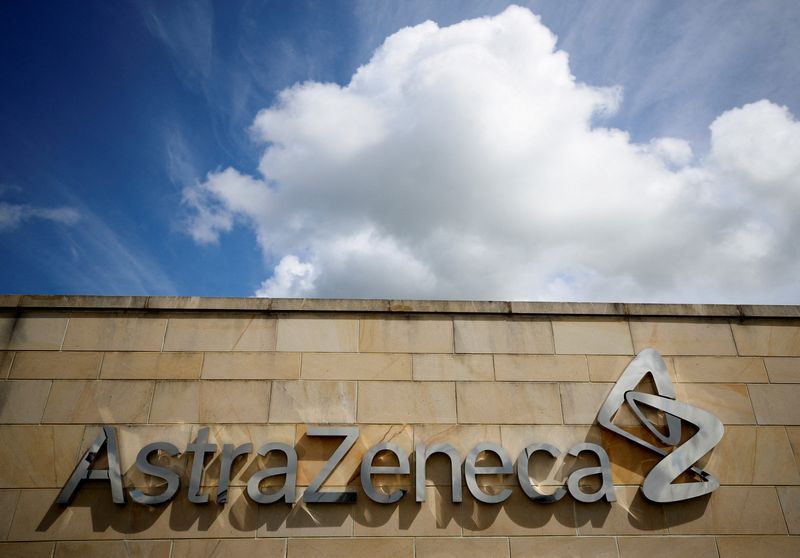Investing.com’s stocks of the week
(Reuters) -Shares in AstraZeneca (NASDAQ:AZN) fell more than 4% on Wednesday after a data abstract on its experimental precision drug's use in lung cancer patients in a late-stage trial disappointed some analysts.
The abstract on the drug, datopotamab deruxtecan, was published ahead of the European Society for Medical Oncology's (ESMO) congress that kicks off in Madrid on Friday.
Jefferies analyst Stephen Barker said in a note the data was "worse-than-expected", citing the drug only improved the time patients with non-small cell lung cancer live without their disease worsening by 0.7 months compared to chemotherapy.
Barker said he was expecting an improvement of 1.5-2 months.
The data abstracts, which also included details on the drug from a breast cancer trial, did not "drive excitement" and were unlikely to result in any changes to forecast numbers for the drug, said Guggeinheim Securities analyst Seamus Fernandez in a note.
Fernandez added that progression-free survival in lung cancer patients came in below expectations.
While some analysts flagged that data showed there were three drug-related deaths in the study, compared to two in the chemotherapy arm, Fernandez said treatment-related deaths were "not as bad as feared".
Barclays analyst Emily Field also said in a note that safety looked better than expected for lung cancer patients and the data abstracts were "collectively positive" for AstraZeneca.
London-listed shares of AstraZeneca were down 3.7% at 1219 GMT, while the broader STOXX Health Care index was off 1%.
The drugmaker's U.S.-listed shares also fell about 4% in early trading hours.
AstraZeneca's forward looking price to earnings ratio, a common benchmark for valuing stocks, stood at 18.66, better than British rival GSK's 10.17 ratio.
Shares of AstraZeneca's Japanese partner Daiichi Sankyo, which is jointly developing the cancer drug, closed 4.6% lower on Tuesday.
